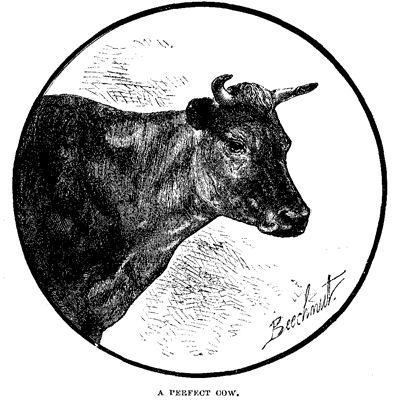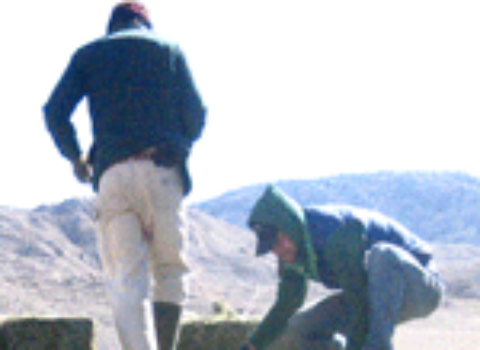For half a decade, I’ve been away from the United States, following my wife, a foreign correspondent, across the Middle East. In Baghdad, in Beirut, we saw some of the worst things people can do to one another. But as Americans, it was impossible not to be preoccupied with the various ways our own country seemed from abroad to be in decline: obesity in the schools, gun violence in Chicago, financial trouble in Detroit, soldiers returning to homelessness and suicide. We knew that eventually these problems would be ours, too.
Then it was summer, and I was living temporarily with my daughter in the small town of Petersburg, Illinois, where my mother had moved after my dad died, where my wife’s parents had lived for twenty years, and where with no lack of anxiety I waited for my wife to quit the war so we could start a new life back in the States. In all likelihood, her next assignment would find us in a big city on the coast, but until a decision was upon us, anything seemed possible.
One day, killing time, I was sitting in my mom’s cluttered living room, staring out the window and wondering, when I turned to spot a newsprint booklet. I picked it up and saw inside a suggestion, perhaps, that all in America wasn’t coming apart or getting worse. It was a guide to the competitions of the 158th Menard County Fair. On display would be champion Christmas pillows, meat goats, oats, ponytails (braided), ponytails (unbraided), and shelled corn. No drone strikes, no wiretapping, no meth.
“Mom, would you accompany me to the county fair?” I asked.
Slowly lowering her magazine, she looked at me with surprise. It’s not like the fair has done much to recommend itself. My in-laws, who have lived in Illinois forever, don’t enjoy going anymore. And in my own life, there was David Foster Wallace’s 1994 dispatch from the state fair, which told of fattening food, belching masses, head-crushing carnival rides, leering carnies, and squealing animals cooped up in pens. Yet paging through the County Fair guide, I saw a different kind of event, and an America I maybe wanted to be a part of again.
“Of course I’ll go,” she said. “Let’s do this.”
More than a hundred of these fairs take place across Illinois each summer, their competitions leading up to the grand prizes awarded at the Illinois State Fair, which takes place in August, in Springfield. Historically, the smaller fairs were a place for locals to gather for entertainment and education, and to compete in talent and livestock competitions. These days they’re as likely to be about beer and bands. At this year’s Illinois State Fair, you could rock out to Journey, REO Speedwagon, or Styx, or pay relatively big bucks to see John Mayer, Toby Keith, or Ke$ha.
Driving past the corn and trees that Saturday morning, we pulled into a wide-open field, and parked on the Menard County Fairgrounds. We stood on either side of her sensible sedan, applying sunscreen and regarding the very brief midway. After a week of near-hundred-degree days, the ground was cracked and two of the six or so rides revolved slowly in the heat, men with big beards and oiled hands making final adjustments and recalibrating the machines after what I suppose was a busy Friday night. The whole affair — a dirt track, the rides, a half-dozen exhibition halls, and five livestock barns — could probably have fit into a typical Toby Keith VIP section.
“Hurry it up, ma,” I said, psyched.
We’d decided to begin our day watching livestock be judged. En route, we passed a barren hall where Menard County Republicans stood in booths, preparing to shake hands. Having married into this part of the world, I’d come to know some of the candidates for local office, including a county-board nominee who’d played guitar at my wedding reception. Among the closest friends of the family was the state representative, a giant man in his mid-sixties. He hadn’t yet arrived, but his RV was parked beside the hall. At one family barbecue, following a year without beer or camaraderie in Riyadh — and a few weeks after I’d waited forever at a Saudi immigration office to secure my newborn daughter’s exit visa, watching as Afghan guest workers with expired papers marched in leg chains across a dusty yard — I’d tried to hug the big man. To his credit, he didn’t hit me.
Perhaps he knew or at least guessed these factors: that it’s hard to live abroad; that when you’re over there you’re an outsider, a witness, both vulnerable and somehow exempt. That your conception of yourself becomes skewed, and you alternately idealize and avoid the memory of what you’ve left behind, often unable to imagine the version to which you’ll eventually return. When I’d come home for short visits, I’d find myself toggling uncomfortably from alien to local. In Illinois, especially, I was either hyperjudgmental or puppy-dog excited, hugging any man who’d hand me a beer, or plotzing when I encountered a barn labeled BEEF.
Inside the barn, the sweet stink of dung prevailed. Boys and girls skittered about, preparing animals for the Junior Black Angus cattle competition. Family members sat in folding chairs, coolers at the ready, or stood around fawning over potential champions as though they were human babies. In one corner, a father and son with matching mullets took turns blow-drying the silky black coat of a fluffy heifer. I envied their hard work and good form. Elsewhere, a pretty young girl led her massive charge to a stanchion. I couldn’t believe how wide the animal was, and how magnificent its black coat. Watching the girl scratch the cow’s tail and pat its flank with such confidence and contentment, I thought of my well-traveled daughter, who’d been born in Saudi Arabia, took her first steps in Turkey while her mother was in Iraq, and rode her first bike in Beirut. She hadn’t seemed stressed by all of this movement; perhaps she’d be equally happy with some time petting a cow?
My mom and I found seats in a rickety wooden grandstand under the barn, taking our spot among rows filled with parents and grandparents. I felt uneasy, knowing we didn’t actually belong, but then an ancient married couple sitting in a customized golf cart nearby smiled warmly at us, pointing at a man walking into the judging ring. He wore a University of Illinois T-shirt — some of the judges were from the local agricultural college — and he circled the participants and their animals, pausing occasionally to push his shaggy brown hair out of his eyes. While he inspected hooves, haunches, and hair, boys and girls stood next to their animals, sweating through their starched shirts and feigning an adult bearing, bending now and then to move a massive thigh or yank at a moist nose.
“This is a heifer I appreciate for her structural soundness,” the announcer said finally, indicating the winner. “She’s a female that has a lot of femininity — what I like about her is she just looks like a cow.”
So engrossed were we, we missed the fishing and Little Miss Farmer contests and the diaper-design hour. But there were plenty of smaller prizes left to be awarded — dozens of contested moments yet to come, everyone on good behavior, never a doubt they’d agree to recognize who or what was best. Feeling a little drunk on the poetry of cattle calling, we headed back to the midway.
After years in a corner of the world where contests are being adjudicated with blood, I walked down the dusty road in Illinois, filled with admiration for all this civility and wholesomeness. Outside the culinary exhibition, housed in a hangar-sized structure with peeling white paint and a cockeyed roof, three generations of women arrived to unlock the doors for us. “We’re gonna open it up,” said a silver-haired lady in a flowered blouse. “Don’t you worry.” With calm and pride, she gestured at two long glass cases, filled with plate after plate of cookies, breads, jellies, and jams. Some of the plates were labeled with small tags that read “Men only.” Their muffins didn’t look bad at all.
We spent a few more hours browsing the best oats, top corn, and superlative wheat. I figured that I would probably never live in Petersburg, but that if I did, nothing would stop me from entering my own giant cucumber in the fair. I checked my watch and realized that in another hour we could see the tractor pull. But my daughter was home with my wife’s parents, and there was dinner to prepare. We heard a loud clank. Peeping around a corner, I found two old men in suspenders making ice cream. They were icing down a wooden churn, which was being powered by a motor up on blocks. “It’s only one and a half horse,” one of the men told me, patting the engine. “Sometimes all you need is just a little.”
“You find what you needed?” my mom asked, watching me.
I squinted in the sun, unsure.
“Let’s have some ice cream,” I said.
The sun pounded down on a fair in the middle of America, and we took a seat on a bench in the shade. We passed the melting sweet thing back and forth, and finished just in time.




